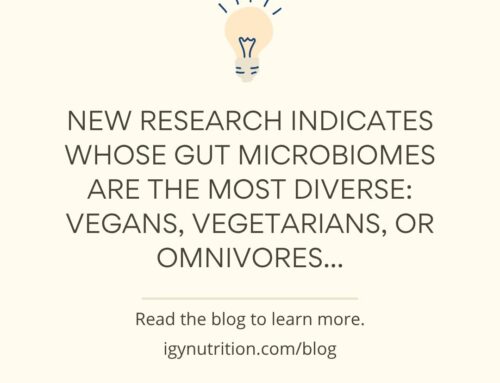Do you struggle with low stomach acid? Maybe you read our blog about low stomach acid and suspect that you suffer from it.
If that’s the case, read the blog to learn how to handle low stomach acid properly. You may have come across the portion that suggests taking a digestive enzyme with your food. But how do you choose the right one for you?
Let’s jump in.
Enzymes: Background
Let’s recap – why do we need enzymes again?
When you chew and swallow your food, its first stop is the stomach, where the food is broken down in preparation for absorption in the intestines.
Your stomach, a muscle, uses contractions to begin that process. But it needs a bit of chemical “umph” to get the job done: stomach acid.
Stomach acid is a mix of acids and enzymes that break down food into an absorbable form. Without it, we wouldn’t be able to use food for energy (1).
Stomach acid also confers immune support – a bonus. The acidity of the stomach acid usually kills off germs or harmful pathogens that hitch a ride into the body on your food (2).
Not having enough stomach acid makes absorbing nutrients and energy from food difficult. If the food isn’t broken down, your intestines will struggle to use it (3)!
Over time, this lack of food absorption can lead to nutrient deficiencies, fatigue, weight fluctuation, and hormonal issues – all of which create consequences (3).
Digestive enzymes are pretty crucial for whole-body health. Having too little of them would be a bad thing. So how do you replace them properly? Sometimes, supplements can do the trick.
Choosing a Digestive Enzyme
You’ll want to purchase high-quality stomach acid supplements and digestive enzymes.
The supplement should at least contain the following:
- Pepsin
- Betaine HCl
- Amylase
- Protease
- Lipase
Pepsin and betaine HCl are critical components of stomach acid. They’re needed to break food down (4, 5).
Amylase is an enzyme that breaks down carbohydrates. Protease breaks down protein, and lipase breaks down lipids (fats) (6).
Without enough of these enzymes, you may not be able to properly break down and absorb energy and nutrients from your food. For example, if you lack lipase, digesting high-fat foods may exacerbate your symptoms.
You can consider the following ingredients to be bonus ingredients:
- Bromelain
- Papain
- Bile extract
- Cellulase
- Lactase
- Other “-ase” enzymes
To learn about the benefits of these “bonus” enzymes, check out “Choosing a Digestive Enzyme Part Two.”
We’ll also go over what to look for when buying an enzyme, some of our favorite brands, and how and when to consume them in the next blog.
Thanks for joining us today! Tag us in photos of your digestive health journey on Instagram at @igynutrition.
References
- InformedHealth.org [Internet]. Cologne, Germany: Institute for Quality and Efficiency in Health Care (IQWiG); 2006-. How does the stomach work? 2009 Dec 31 [Updated 2016 Aug 21]. Available from: https://www.ncbi.nlm.nih.gov/books/NBK279304/
- Smith JL. The role of gastric acid in preventing foodborne disease and how bacteria overcome acid conditions. J Food Prot. 2003 Jul;66(7):1292-303. doi: 10.4315/0362-028x-66.7.1292. PMID: 12870767. https://pubmed.ncbi.nlm.nih.gov/12870767/
- https://www.clinicaleducation.org/resources/reviews/the-role-of-hcl-in-gastric-function-and-health/
- Yago, Marc R et al. “Gastric reacidification with betaine HCl in healthy volunteers with rabeprazole-induced hypochlorhydria.” Molecular pharmaceutics vol. 10,11 (2013): 4032-7. doi:10.1021/mp4003738 https://www.ncbi.nlm.nih.gov/pmc/articles/PMC3946491/
- Heda R, Toro F, Tombazzi CR. Physiology, Pepsin. [Updated 2021 May 9]. In: StatPearls [Internet]. Treasure Island (FL): StatPearls Publishing; 2022 Jan-. Available from: https://www.ncbi.nlm.nih.gov/books/NBK537005/
- https://www.hopkinsmedicine.org/health/wellness-and-prevention/digestive-enzymes-and-digestive-enzyme-supplements




